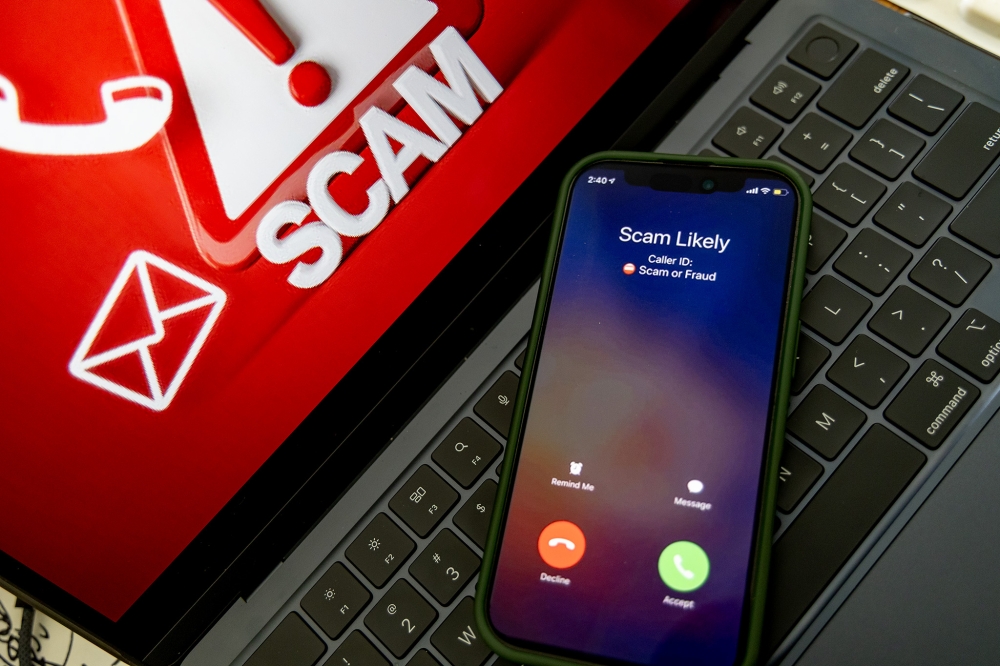AUGUST 10 — Looking at scenes played out in restaurants nationwide, it does seem as if handheld devices have become the preferred tool to appease wailing children.
Gone are the days where they are found running around the restaurant, squabbling over sitting positions at the table or performing incessant cutlery percussion.
All a parent has to do is pass them their tablet — filled to the brim with the latest cartoons and games — and the child will be glued to the screen, as silent as a mouse.
But, how can they be blamed? Not many adults, let alone children, can resist the temptations of a black mirror.
This phenomenon has prompted me to reflect on my generation’s reliance on their handheld devices and the consequences that follow.
Then and now
It is true that technological advances have led to the proliferation and free access of information.
Barely 10 years ago, accessing the internet through a handheld device was unthinkable.
In those dark ages, solving a burning question would require returning home to a desktop PC, connecting it to the 384Kbps Streamyx and a dollop of patience.
Today, 4G LTE connection has allowed access to information at your fingertips: both figuratively and literally. Everything you need to know about the world, be it the depth of the Mariana trench or what Kim Kardashian is wearing today, is just several taps on your smartphone away.
And then came mobile apps. Who would’ve ever thought free things could be this useful. Need to track your email, finances, exercise schedule or daily calorie intake?
Are you a shopper who prefers goods to be delivered to your doorstep? Or are you just plain bored and in need of the game everyone seems to be playing? Well, a visit to the Google Playstore or Apple iOS will solve your woes!
It can be said that a handheld device complete with a stable service provider has transitioned from a luxury only the wealthy can afford, to a need in this day and age.
However, has this convenience afforded by technology led to a constant urge to be entertained, enthralled and stimulated by the very devices that have facilitated it?
Handheld distraction
For me and many of my peers, handheld devices have become an extension of our bodies. It is something that we can’t imagine our lives without.
Their screens are most likely the first thing that lights up our faces (no pun intended) in the morning and the last thing we switch off at night. If at all.
I argue that the rise of messaging apps like WhatsApp and WeChat as well as the presence of the social media trinity of Facebook, Instagram and Twitter in the app realm has contributed greatly to this.
So much information, either specifically directed to the user or simply out there for the world to see, can be accessed through these apps.
I must admit to have succumbed to such distractions. When nothing is going on in the real world, I often find myself constantly fighting the urge to check my phone; either to reply that WhatsApp message, Fav tweets I identify with, or double tap someone else’s OOTD (outfit of the day) on Instagram. Have I become addicted to my smartphone?
Dangerous trends
The American Association of Addiction Medicine characterises addiction as an inability to consistently abstain, impairment in behavioural control, craving, diminished recognition of significant problems with one’s behaviours and interpersonal relationships, and a dysfunctional emotional response.
Though handheld device/technology/social media addiction has yet to obtain medical recognition, people who use them excessively do exhibit symptoms that are similar to any other addiction.
These include feeling anxious when the devices are absent, spending too much time thinking about how to use them or even negatively affecting relationships in the real world.
In some situations, this lack of control over ourselves is evident and has reached previously unimaginable proportions.
For example, many drivers manoeuvre through the streets of Kuala Lumpur with one hand on the steering wheel. This is not because they are trying to replace Vin Diesel in the next Fast and Furious movie but rather because their other hand is holding up a smartphone either on Waze or replying to a conversation.
Some might argue that the concept of being "lost" has been removed with the advent of such apps, but it is also true that slivers of concentration are taken away when a driver uses (or rather misuses) their smartphones. This can ultimately result in accidents.
In another example, participants of the postgraduate diploma I’m currently undertaking have to be told to put away their phones at the beginning of every ceremony as a sign of respect to the speakers. This is a group of 22 to 35-year-olds, mind you.
It is as if we are no better at self-control than those children at the dinner table.
A kaleidoscope of information
One must admit that the advent of portable gadgets such as smartphones and tablets have changed one's life, no, civilisation forever. Never before has man (and woman) had such a powerful tool at his (or her) disposal.
However, this has come at a price: our mind begs to be entertained at all times. We have been pampered with this flurry of information that life without it has become unimaginable.
Nonetheless, it is important for us to take a step back and reflect on our own use. And if this technology has taken over our lives, perhaps it is time for a handheld device detox. Yes, plunging back to those dark ages is something difficult to do but when push comes to shove, it becomes absolutely necessary.
To conclude, I would like to think of these gadgets as kaleidoscopes in this age of distraction. Looking into them gives us much pleasure but when your eyes start to strain from the constant barrage of colours and ever-changing patterns, it might be a good idea to take a break, look up into the real world and savour those surroundings instead.
* This is the personal opinion of the columnist.






















